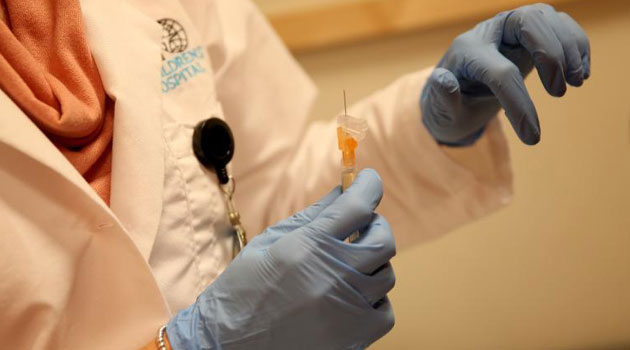
The exercise will be carried out together with the measles-rubella immunization campaign set to kick off on Monday targeting girls and women aged between 14 and 49 years/FILE
NAIROBI, Kenya, May 13 – Vaccination against neonatal tetanus will be conducted in 11 counties identified as high risk areas, the Ministry of Health has said.
The exercise will be carried out together with the measles-rubella immunization campaign set to kick off on Monday targeting girls and women aged between 14 and 49 years.
The 11 counties identified for the tetanus campaign include Kilifi, Mombasa, Meru, Mandera, Wajir, Garissa, Baringo, West Pokot, Turkana, Samburu and Narok.
“Globally one newborn dies every nine minutes from neonatal tetanus. In Kenya, we lose one child everyday from this silent killer totalling to at least 400 children, hence the need to address this issue,” said Dr Collins Tabu from the Unit of Vaccines and Immunization Services, Ministry of Health.
“The goal of maternal and neonatal tetanus elimination is to reduce number of cases to less than 1 case of neonatal tetanus per 1,000 live births, in every sub-county,” said Dr Tabu.
By end 2013, Kenya was among 28 countries that were yet to achieve the Maternal Neonatal Tetanus Elimination (MNTE) targets.
A report by the African Health Observatory indicated that the global MNTE initiative was launched by WHO, UNICEF and the United Nations Population Fund (UNFPA) in 1999 with the aim of eliminating the disease by 2015, the target date for the worldwide elimination of the disease.
However, progress in elimination has been delayed in the region, due to slow implementation of the recommended strategies with some member states yet to achieve elimination.
Neonatal tetanus therefore remains a public health problem in 12 countries: Angola, Central African Republic, Chad, Democratic Republic of the Congo, Equatorial Guinea, Guinea, Kenya, Mali, Mauritania, Niger, Nigeria and South Sudan, as well as the Somali region of Ethiopia.
In the absence of intensive hospital care, neonatal tetanus is nearly always fatal. As with other causes of maternal and neonatal deaths, most of the fatalities from Tetanus take place in poor and marginalised communities where women have limited or no access to quality health care and little knowledge of safe delivery practices.
“Increasing implementation of both measures, particularly immunization of pregnant women, will significantly reduce the number of cases and deaths from maternal and neonatal tetanus,” noted Dr Tabu.









































